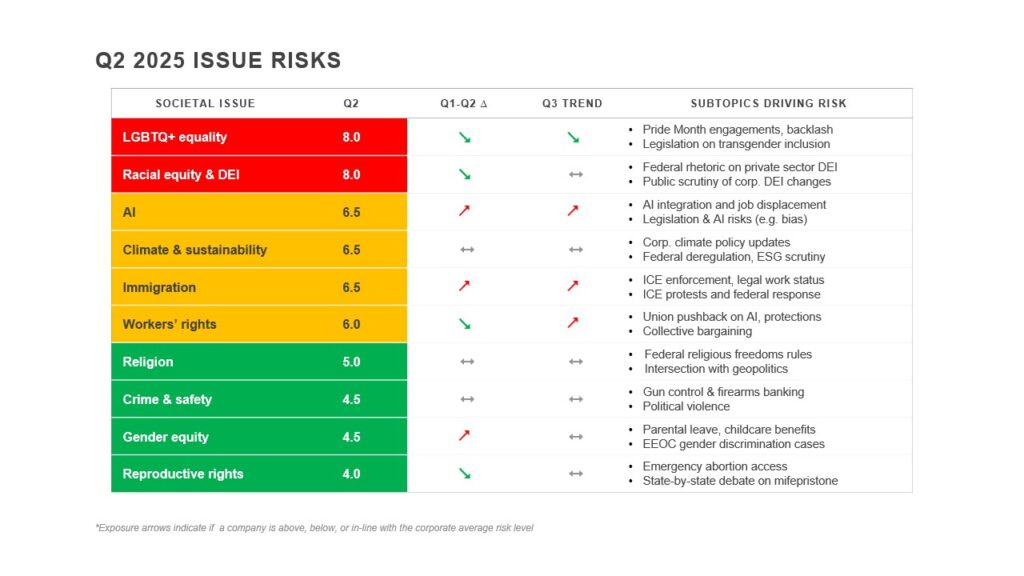As domestic and global economic pressures mount, so do the reputational risks facing major corporations. Economic uncertainty elevates scrutiny of corporations—specifically around communications and business practices—and can trigger backlash from a range of stakeholder groups, including consumers and policymakers. Gravity Research’s latest report highlights the most prevalent topics to watch and the reputational implications they carry.
This new analysis builds on Gravity’s expanding work tracking evolving Economic Headwinds, which we define as the economic, financial, and business conditions that may amplify corporate criticism, anti-corporate populist sentiment, or negative international disposition toward U.S. brands.
Key Findings
Companies spoke out as tariff impacts intensified
Gravity Research tracked Fortune 100 statements on U.S. tariffs from April 2 to May 31 and found that while early executive commentary was limited, public engagement grew as global impacts set in. The most prevalent themes covered in statements were pricing and affordability, reflecting companies’ goal of addressing economic impacts for stakeholders.
Rising anti-U.S. sentiment threatens U.S. companies’ international reputations
Consumers across Canada, China, Europe, and Mexico are sustaining boycotts and backlash against U.S. products in response to the Trump administration’s contentious tariffs and foreign policy decisions. Concurrently, China’s growing global influence could increase competition in areas with high anti-U.S. sentiment.
Populist critiques are generating hostility towards large corporations
Public frustration and distrust toward brands, driven by perceptions of “corporate greed,” failure to uphold social responsibility, and “excessive political power,” have been growing since the COVID-19 pandemic. Policymakers and activists on both sides of the political spectrum have recently stoked this rhetoric, amplifying anti-corporate sentiment.
Tax reforms for major brands could trigger consumer backlash
The proposed “One, Big, Beautiful Bill” would lower tax burdens for companies while cutting funding for social programs. If passed, the bill could exacerbate anti-corporate sentiment for companies benefiting from tax breaks while raising prices.
Looking Ahead
Pauses on tariffs set by both the U.S. and its trading partners are set to lift this summer, which could reignite global scrutiny toward U.S. multinationals. Candidates in 2026 midterm elections may also focus on “price gouging” or “corporate greed” and drive an uptick in corporate criticism.
Download the full report to learn more about reputational exposure of mounting economic uncertainty.


